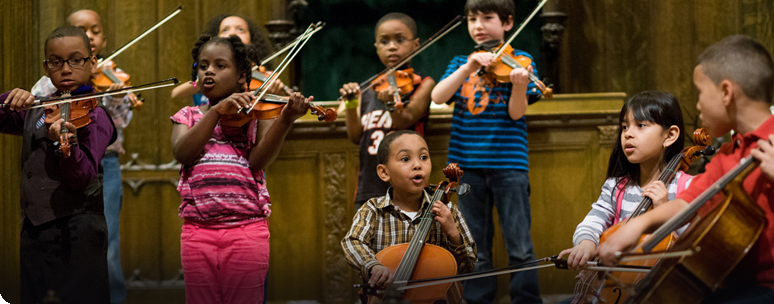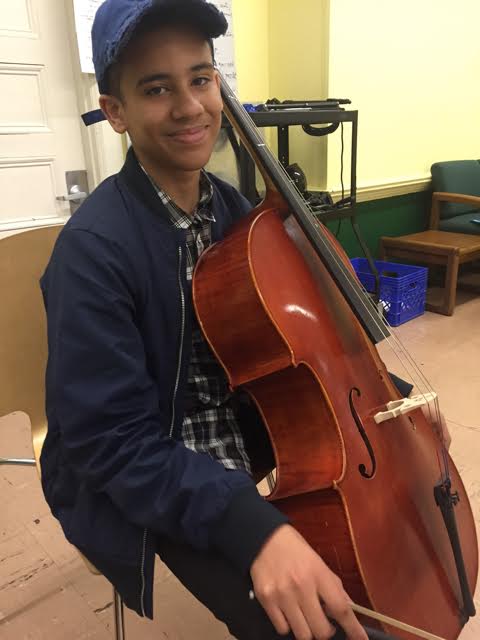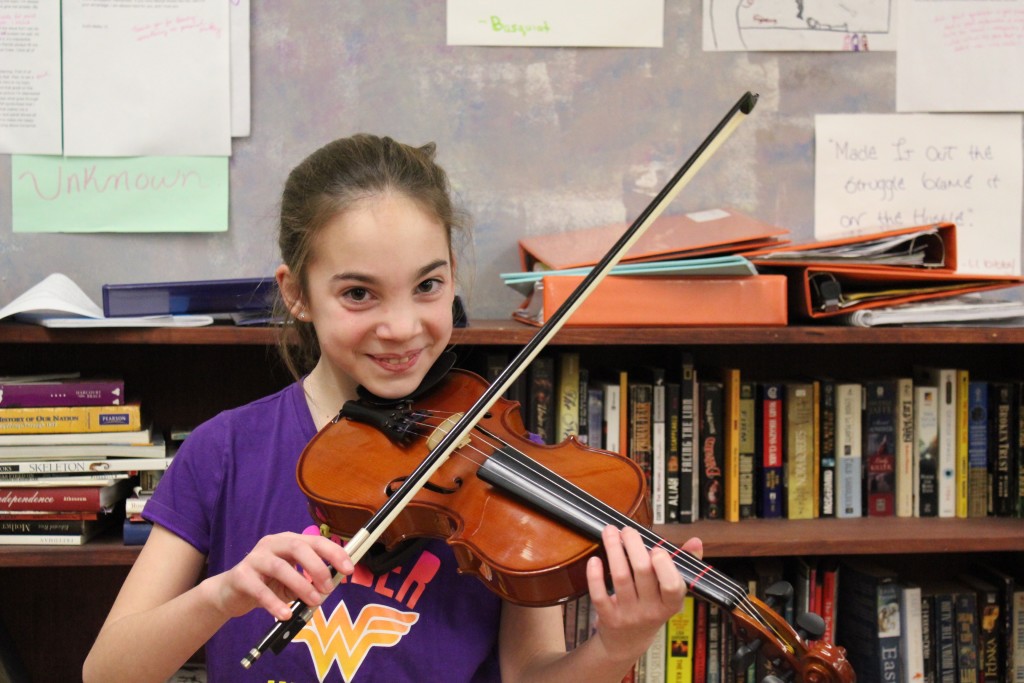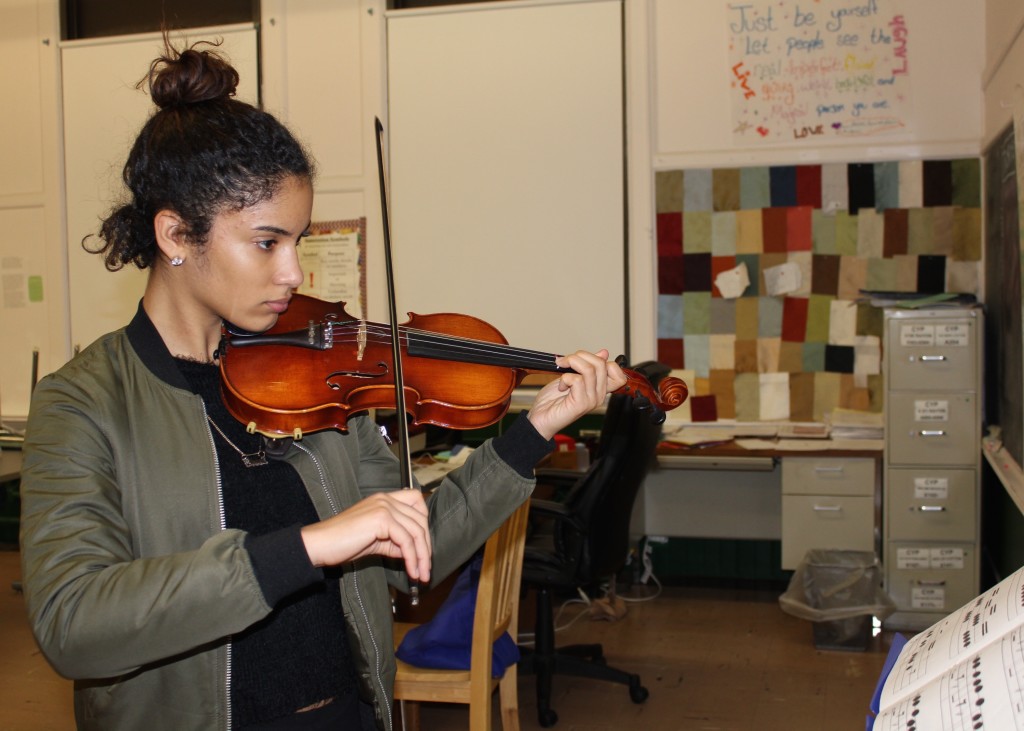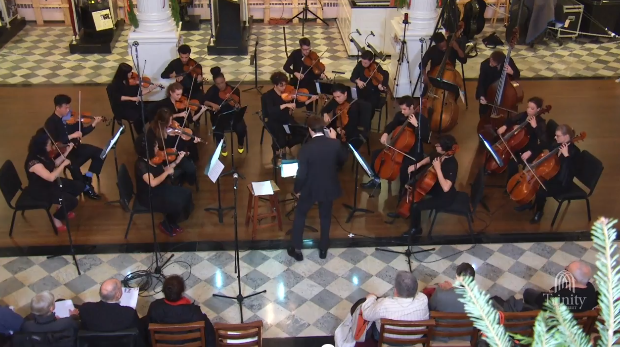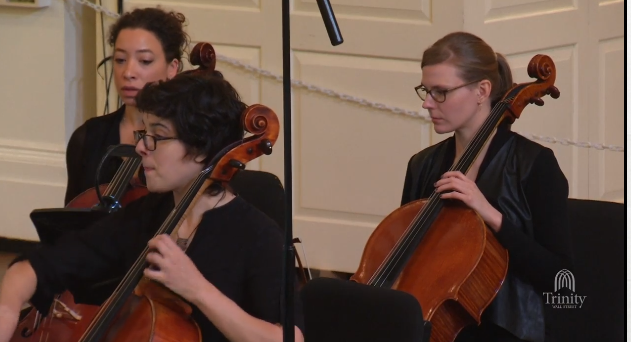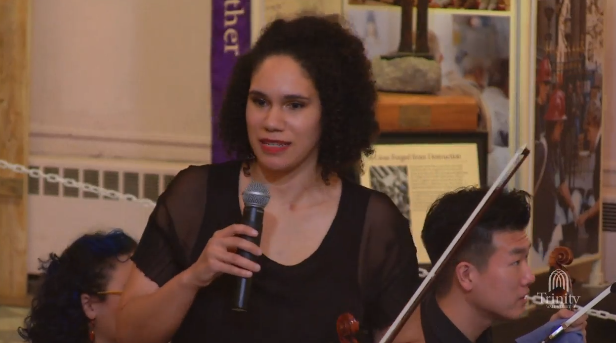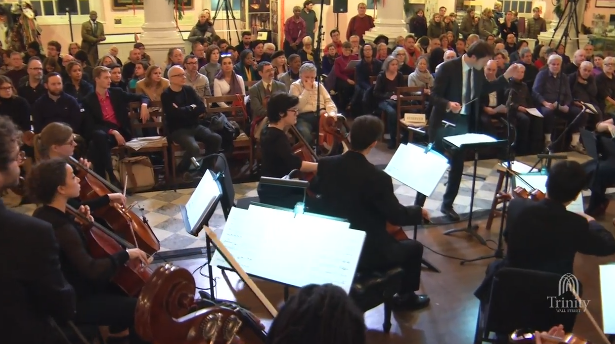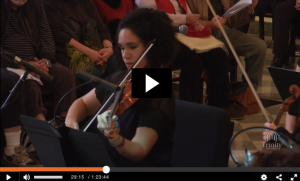This month in our Not Far from the Tree Series, former CMW “Cello Fellow” Lauren Latessa checks in with a report on her moving and important work with the elderly in Maryland:
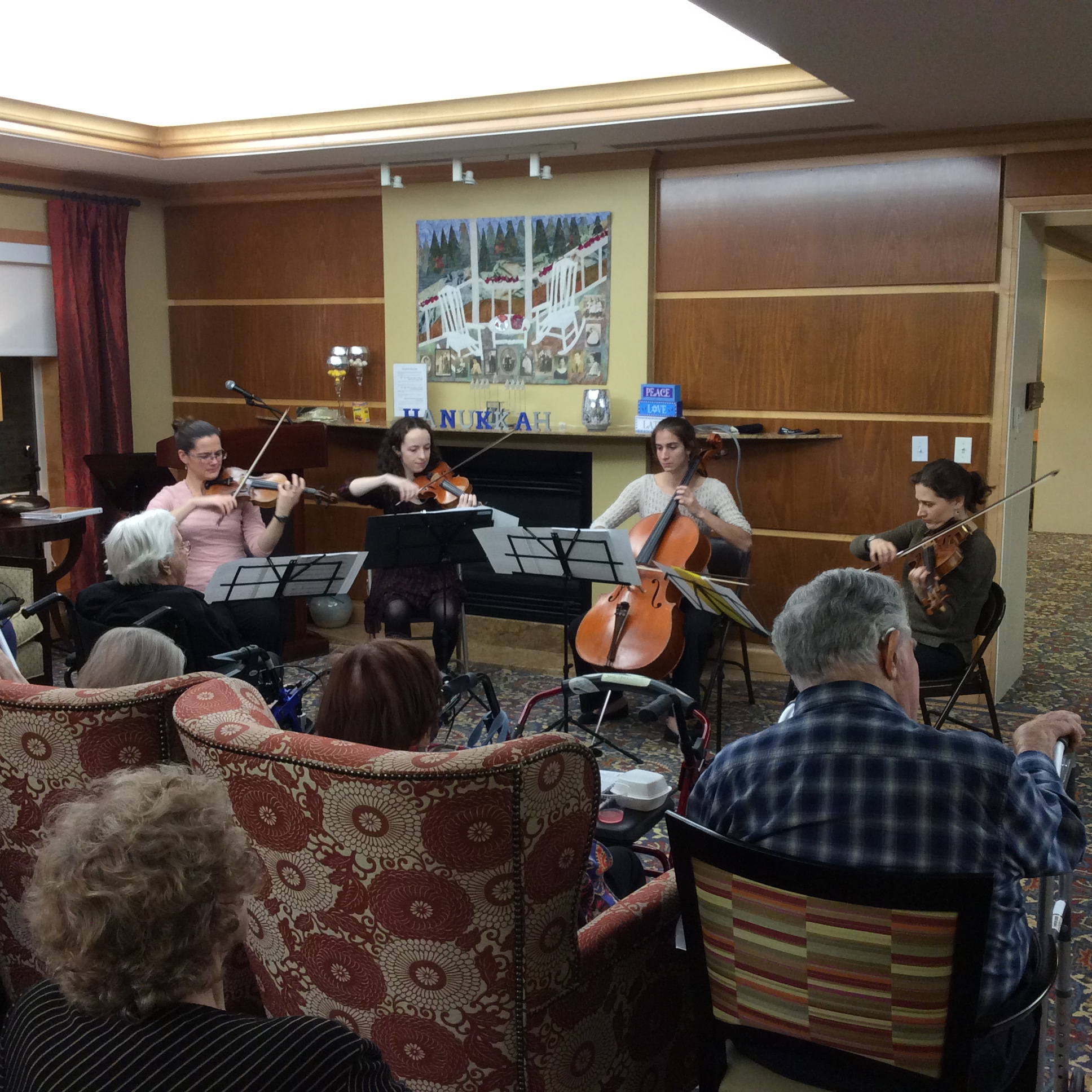
Hello dear CMW friends and Happy 2016!
Last February I took a position as the Musician-in-Residence for a retirement community in Rockville, MD. It was a brand new position, and I’ve spent the past year creating a music program for the elderly based on many of the same principles on which CMW is built. Here I run daily group classes and work individually with residents. Additionally I run and perform on a chamber music series that has concerts on campus once a month.
Thanks to a Tarisio Trust Young Artist Grant, I was recently lucky enough to have Emmy Holmes Hicks and Ealain McMullin, now heading the Newport String Project, along with violist Isabella Mensz here for a week-long Chamber Music Festival featuring the music of Mozart and Dvorak. Here are some highlights from our week together.
Day 1:
Open Rehearsal – Residents were able to observe the quartet as they rehearsed and learn a little more about the musical process.
Q&A with the Quartet – During this question and answer session we had a fantastic discussion about the role of musicians in society and the importance of teaching kids to pass on musical traditions. Emmy and Ealain shared insight about their work with the Newport String Project in Newport, RI.
Recital: Music from the Ring House Songbook – This event was particularly special because it featured music that was chosen by Ring House residents. Twice a month, I lead a sing-along with residents at Ring and during this time we’ve been putting together a Ring House Songbook. All of the music featured in this recital came from the Songbook and included some of the Ring residents’ best-loved ballads. Many of the melodies were new to our festival musicians, and they learned so much about them from residents.
Day 2:
Open Rehearsal
Lecture/demonstration on Dvorak’s American Quartet – We explored Dvorak’s life and experiences and played excerpts from the quartet to highlight how he translated experiences and emotions into his music.
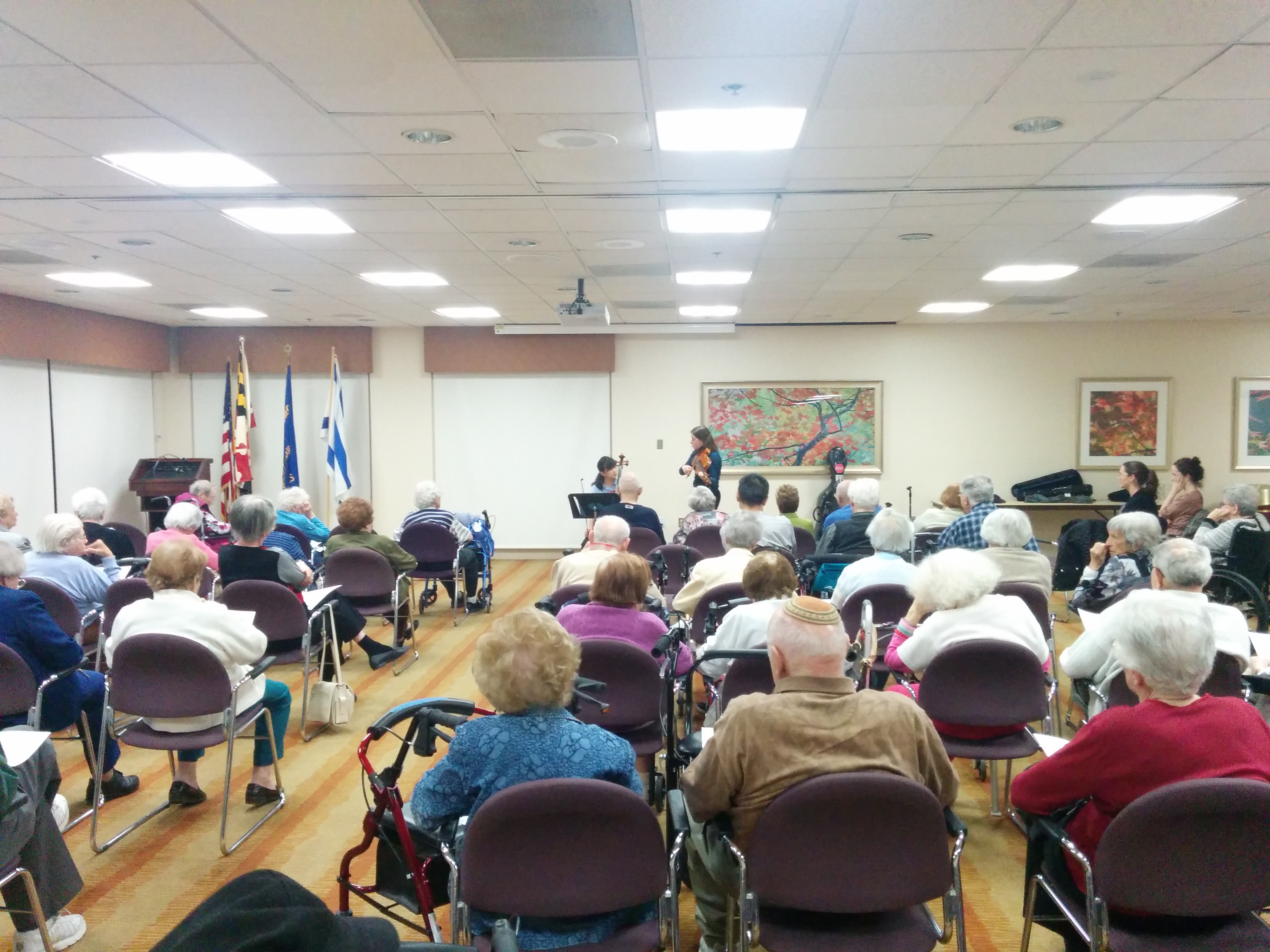
Master Class – This was a particularly thrilling event for residents. During the class, two young cellists from a local high school performed and received feedback from our festival artists. The evening had a very welcoming and encouraging feel! After each student played, residents noticed their improvement and clapped and cheered. This was an inspiring day for all. In particular, it allowed residents to see more of what it takes to gain expertise with an instrument and how the right guidance can make all the difference.
Day 3:
Exploring Jewish Music – Emmy, Ealain and Isa joined our weekly Exploring Jewish Music class as observers and learners. They were all moved by how passionately the residents spoke about music that is close to their hearts. For this special class we discussed the question, “What is Jewish Music?” and focused on four examples: Shema, Kol Nidre, Bei Mir Bistu Shein, and Jerusalem of Gold.
Recital- This was the capstone event of the week! The quartet performed the music of Dvorak and Mozart for 125 residents, friends and family. It was a captivating evening.
Day 4:
Cohen-Rosen House Recital – Cohen-Rosen House provides the highest level of memory care on the campus, serving older adults with advanced cognitive needs. Because of this, I was not sure what to expect from the quartet’s visit to the residence. Part of me was preparing for a half-hour session where we would just play, but not actually interact much with residents.
But, this couldn’t have been farther from what happened. This performance turned out to be the most powerful thing that happened all week. It was a stirring moment when residents used their instruments (drums, egg shakers, tambourines) to connect thoughtfully with us. Some residents cannot converse easily, but they were nonetheless communicating and helping us to create something significant as we performed the first movement of Dvorak’s American Quartet. It’s hard to describe the impact of that moment, but all of us—quartet members, residents and staff members—could feel it. Together we produced an experience more inspiring than any of us could of have done individually.
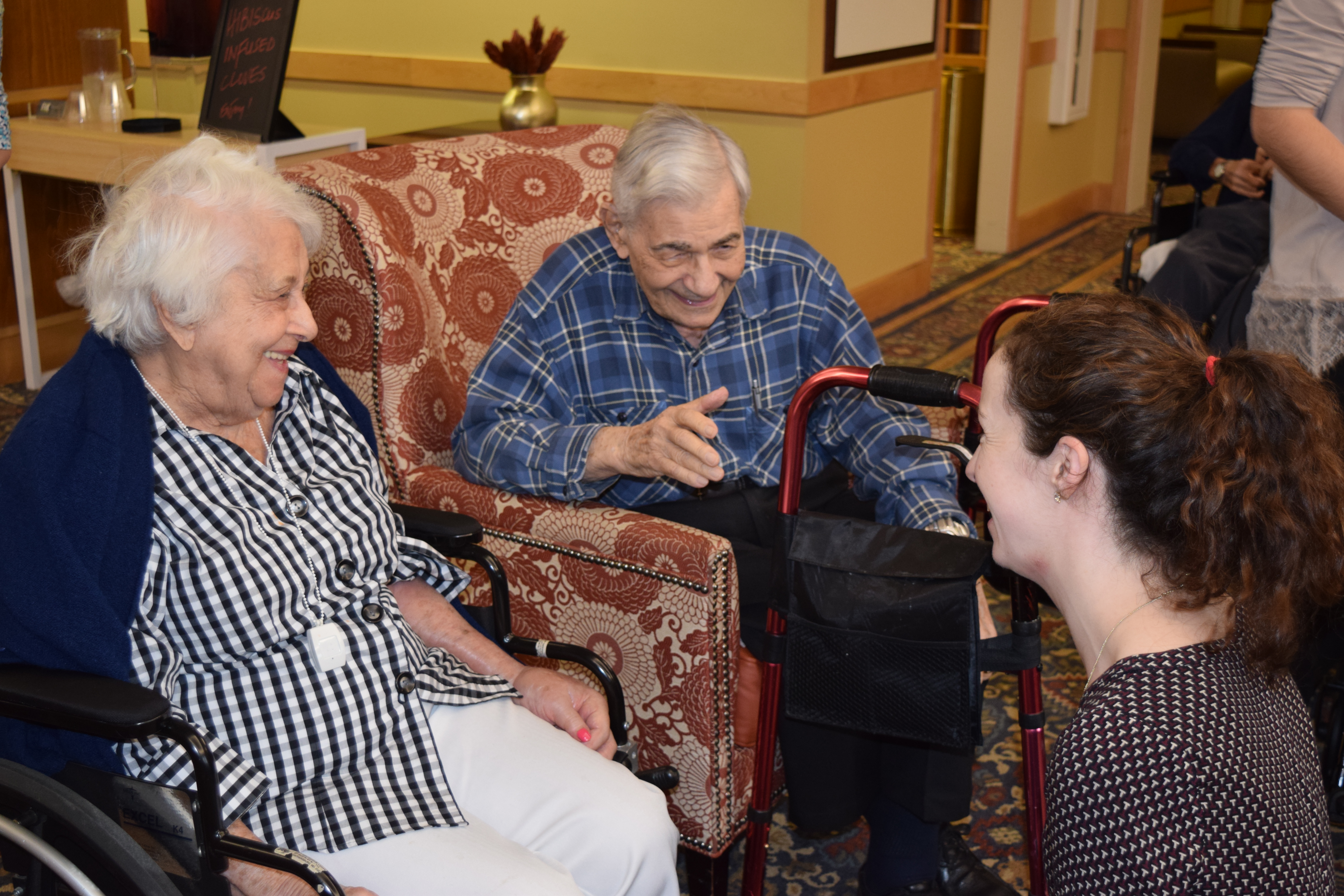
Part of what excited me most about this particular performance was that it demonstrated how classical music might have a stronger presence in memory-care facilities. There is much well supported research on the benefits of performing recognizable popular and folk music for this population. We saw first-hand the potential of using classical music to engage residents in the creative process, even those living with advanced stages of dementia.
Responses from residents:
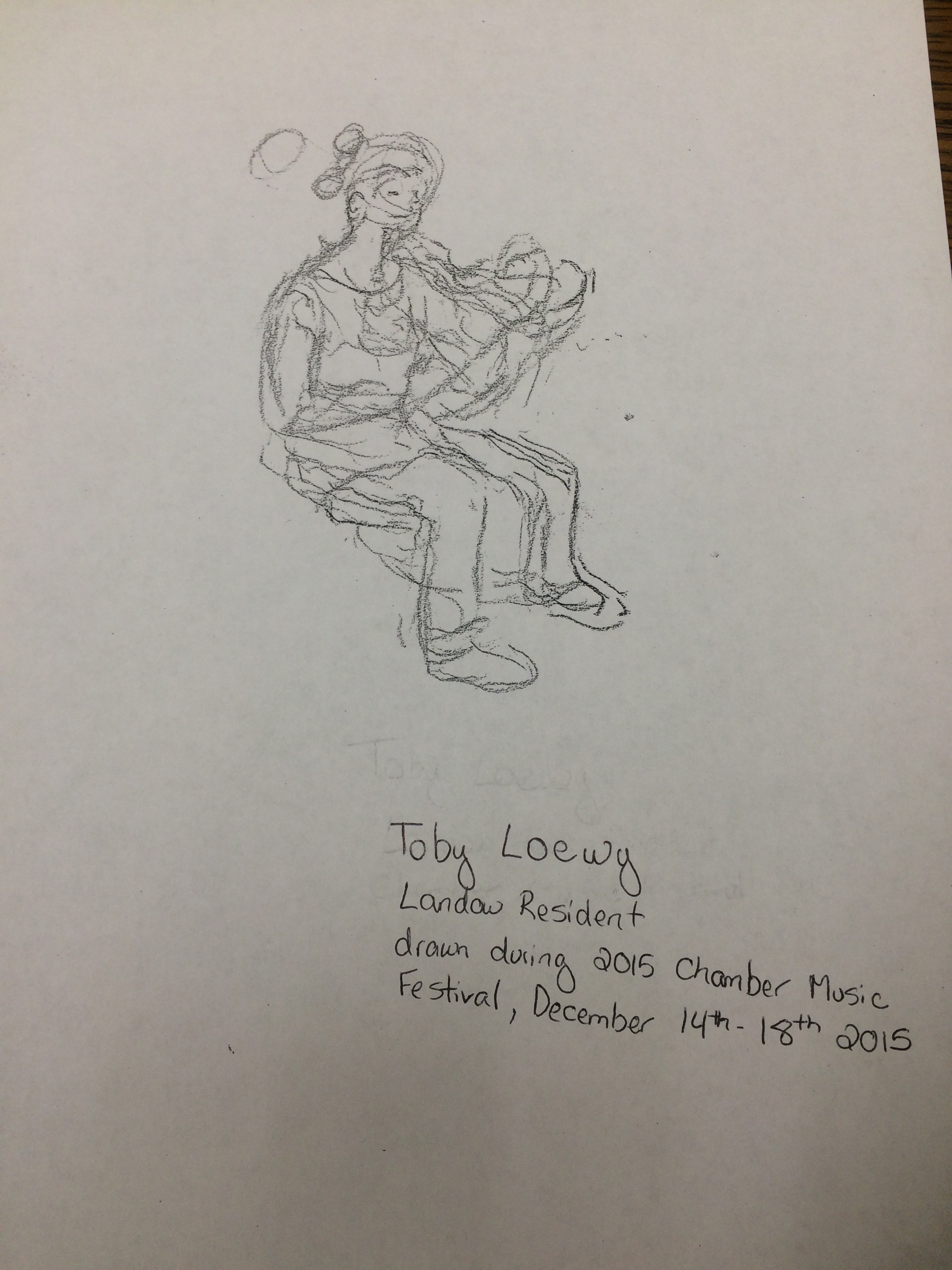
“When I heard the string quartet my first reaction was that these musicians truly love and enjoy what they are playing. This Chamber Music Festival introduced me and us all at Ring House to the magic and beauty of chamber music.”
From members of the Chamber Music Festival Committee: “You know, most of us just sit around feeling like we are no longer needed. But this project has helped me to see that there are beautiful things to do in the world.”
From a community member: “This is all so wonderful. They are playing [music] with great sensitivity and beauty. What a distinguished group—and social service-minded to boot! CESLC may be unique in the USA and even the world in being able to offer something like this to residents.”
Personal reflections: I realize the CMW community already knows this, but one of the wonderful things about chamber music is that it challenges both listeners and musicians to continue to grow. A one-time experience of a piece of chamber music may be exciting, but its real power comes from spending time with it and exploring its complexity and depth. At CMW, I saw how chamber music can foster a vibrant community and I am beyond excited to begin to see the same kinds of effects here!
The societal view of our elderly is changing rapidly as physicians and healthcare provides begin to recognize the importance of quality of life. I believe that programming like our Chamber Music Festival is crucially important in establishing the type of living environment that we all want for our elders and for ourselves. Moving forward, I am excited to explore this new paradigm!
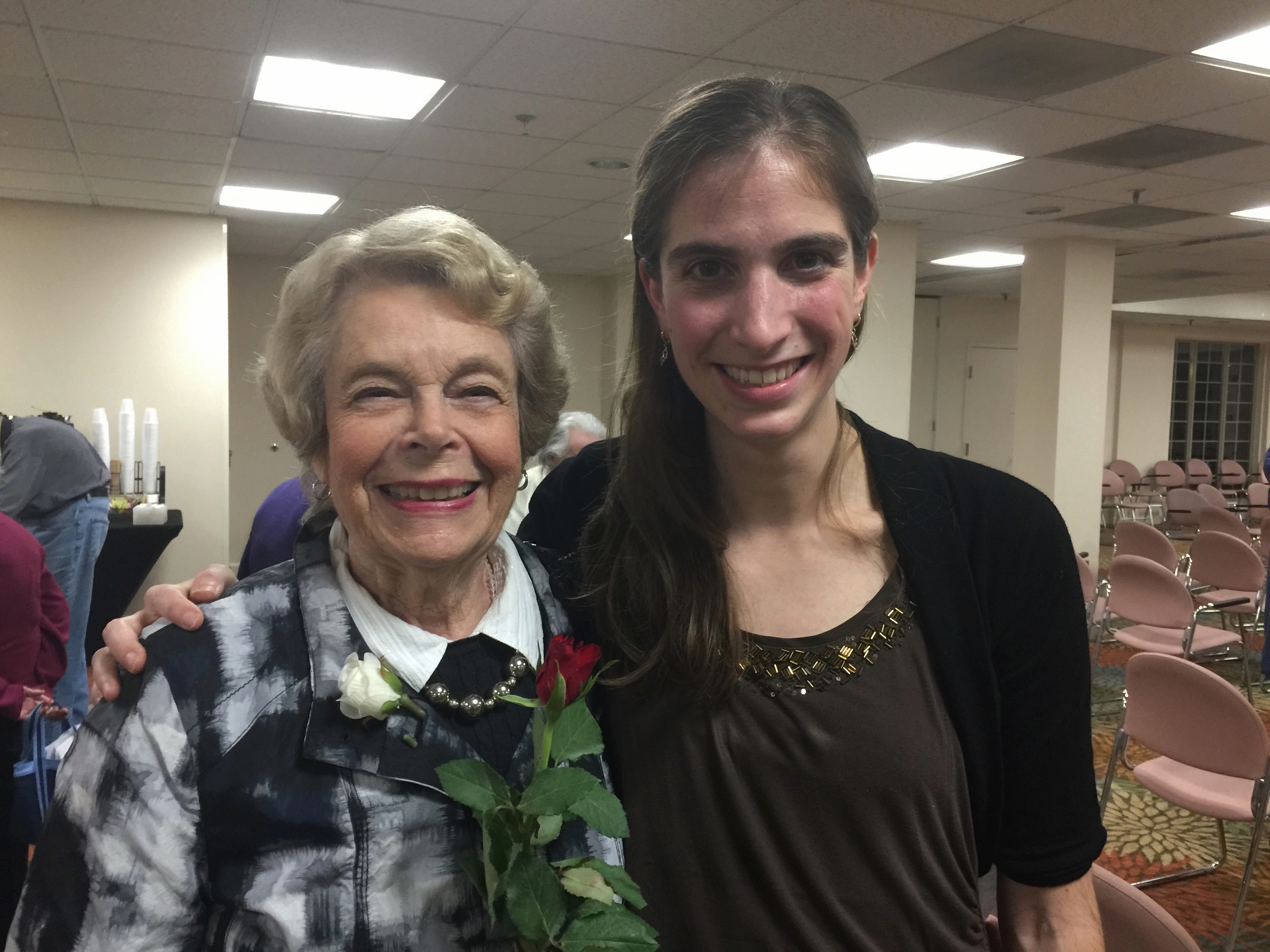
Sending love from Maryland and missing you all! Have a happy and healthy 2016!
–Lauren Latessa, CMW Fellow 2012-2014
Read more about Lauren and other Fellowship Program alums here.
Learn more about the Fellowship Program here.
Images are from Lauren Latessa and the Charles E. Smith Life Communities
